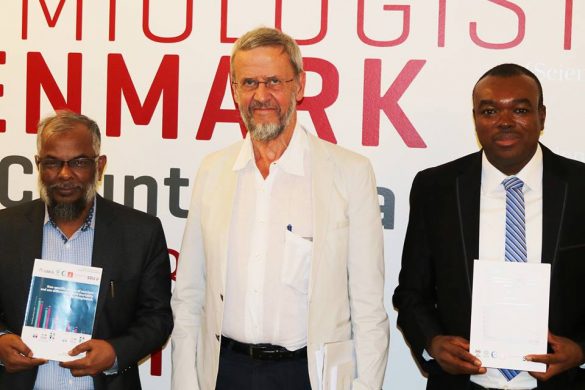If there is a giant in the story of Denmark’s development research, it must be Peter Aaby. For almost 40 years, he has run the Bandim Health Project, a health and demographic surveillance system site that he established in Guinea-Bissau in 1978. He is credited for the discovery of non-specific effects of vaccines, leading the World Health Organization, WHO, to change its measles vaccine programme in the early 1990s.
He is also controversial, but that is to anticipate the story he tells me when he and I meet one late afternoon in January at Statens Serum Institut in Copenhagen.
The beginning
The story begins in 1978 when Peter Aaby was a young anthropologist doing research in Guinea-Bissau. The child mortality rate in Guinea-Bissau was extremely high. About half of the newborn babies died within the first five years of life.
At the time, it was widely believed that the high child mortality rate was due to malnutrition. Together with a team of three other researchers, Peter Aaby was assigned to investigate the correlation between malnutrition and child mortality and how the nutritional situation could be improved.
To our great surprise, we found very little severe malnutrition in Guinea-Bissau when the work started. However, while the research team was in Guinea-Bissau a severe measles epidemic broke out.
Watch the video interview with Peter Aaby here:
Læs hele artiklen hos Danida Fellowship Centre (DFC)














